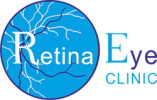
Age-related Macular Degeneration and Nutrition
The macular degeneration is one of the consequences of aging. However, a healthy lifestyle can significantly reduce the risk of eye health problems. A healthy diet plays a very important role in age-related eye diseases and can reduce the risk of them by 25%.
What is age-related macular degeneration and what are the main causes of its appearance?
Age-related macular degeneration is an especially common eye condition that occurs after the age of 50. In particular, the condition is characterized by changes that occur in the macula, that is, an area at the back of the eye, in the center of the retina, that allows us to clearly distinguish the details of an image. The main causes of its appearance are age, genetic factors, smoking and diet.
Macula and nutrition: Nutrients that prevent it
Besides age, the next risk factor is poor diet. Studies conducted by the National Eye Institute have shown that there are some nutrients or a combination of them that protect against the progression of the condition.
Vitamin A
Vitamin A plays a crucial role in your vision. Vitamin A deficiency is rare in developed countries, but if present and untreated it can lead to serious health conditions. Some studies show that diets high in vitamin A are associated with a reduced risk of macular degeneration and cataracts. Foods rich in vitamin A are sweet potatoes, liver, leafy green vegetables, carrots, tomatoes, pumpkins, red peppers, etc.
Vitamin E
Many eye conditions are believed to be related to oxidative stress, which is an imbalance between antioxidants and free radicals in the body. Vitamin E is a powerful antioxidant that helps protect cells, including eye cells. Some options rich in vitamin E are nuts, seeds and cooking oils. Salmon, avocado and green leafy vegetables are also good sources.
Vitamin C
Like vitamin E, vitamin C is a powerful antioxidant that can protect your eyes from harmful free radicals. Studies have shown that when taken daily it can reduce the risk of macular degeneration by 25%. Citrus and tropical fruits, peppers, broccoli and cabbage contain particularly high amounts of vitamin C, making them excellent choices.
Lutein and Zeaxanthin
Lutein and zeaxanthin are part of the carotenoid family, a group of beneficial compounds synthesized by plants. Both of these carotenoids are believed to be able to limit oxidative damage to the retina with the help of light. A daily intake of 6 mg from a diet rich in fruits and vegetables is recommended. Green leafy vegetables such as spinach are also a good source.
Omega-3 fatty acids
Omega-3 fatty acids are a type of polyunsaturated fat and offer a neuroprotective effect on the retina, as they are found in large amounts in this tissue. In addition to helping shape your eye cells, these fats have anti-inflammatory properties that may play a role in preventing many eye conditions. To increase omega-3 fatty acids in your diet, include rich sources such as fish, flaxseed, chia seeds, soy and nuts. Omega-3s can also be found in cooking oils such as olive oil.
Research shows that certain vitamins and nutrients can help prevent or slow the progression of many different eye conditions. Supplements can be beneficial if you suspect that some of these vitamins are lacking in your diet. However, eating a balanced diet rich in fruits, vegetables, whole grains, protein and healthy fats will give you all the nutrients your eyes and the rest of your body need.
